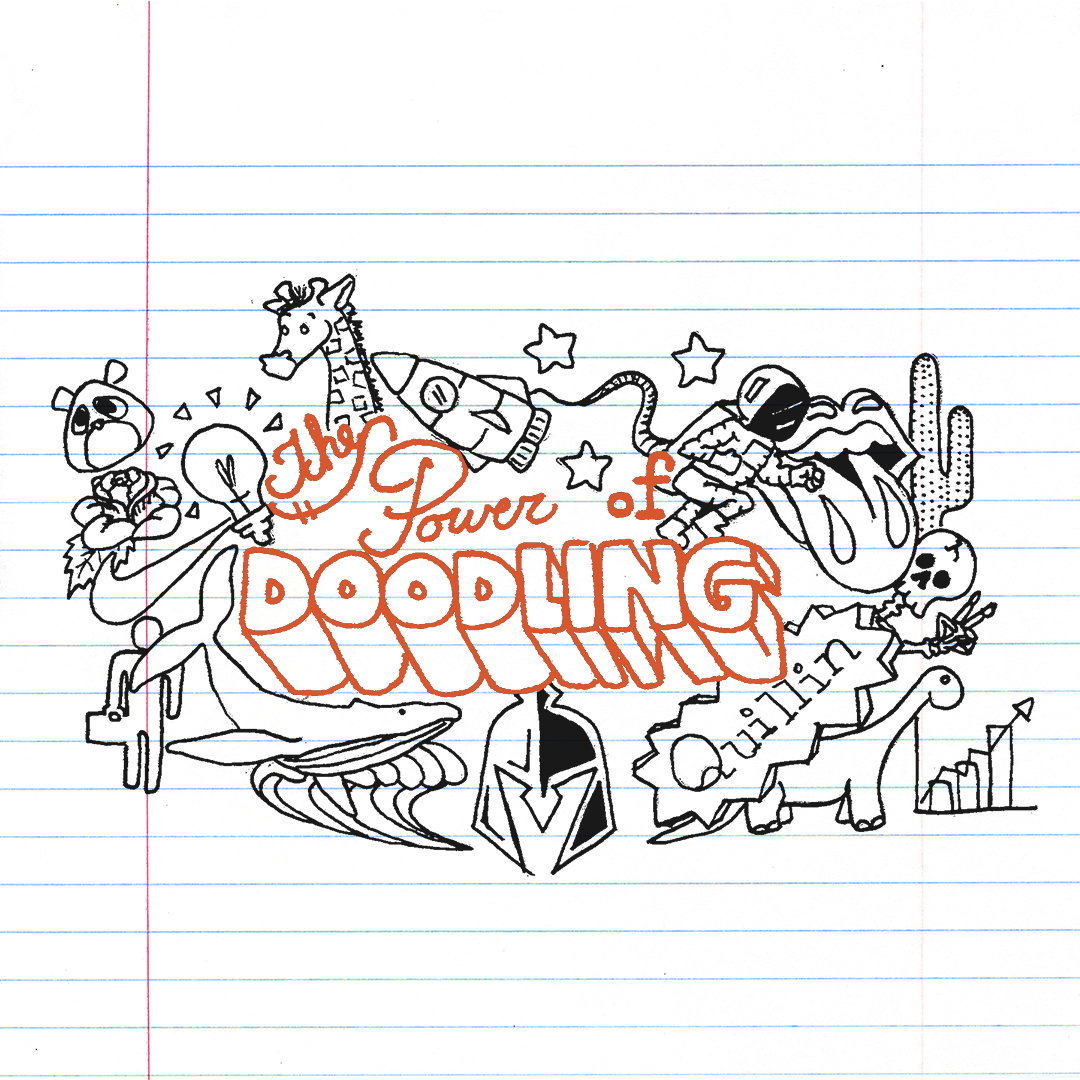A large portion of most people’s lives consist of sitting behind a desk.
 Whether it’s school, a computer, meetings or conference calls, we’re often deskbound trying to stay engaged. Throughout my years behind a desk I’ve tried many different techniques to keep from day dreaming, but nothing comes close to satisfying my needs other than doodling.
Whether it’s school, a computer, meetings or conference calls, we’re often deskbound trying to stay engaged. Throughout my years behind a desk I’ve tried many different techniques to keep from day dreaming, but nothing comes close to satisfying my needs other than doodling.
Doodling is defined as scribbling absentmindedly, but that can’t be farther from the truth. I have found there is a dominant cultural norm against doodling, especially in settings in which I’m supposed to be retaining information. I’ve been called out by many teachers to pay attention, when in actuality I was doodling so my mind wouldn’t drift away. The act of doodling is proven to enhance creativity, concentration and memory and it even releases stress.
Doodling improves creativity and problem solving because it gives the individual an opportunity to think differently through visual language. Focusing on the pictures or designs that reflect what you are hearing or thinking allows the unconscious mind to think outside the box and inspires new spontaneous ideas. Next time you’re in a brainstorming session or need to solve a problem, stay away from the typical notes and work out some potential alternatives or ideas through a doodle map and you may be surprised by the outcome.
Not only does it allow you to think creatively, but it is proven that those who doodle actually retain more information than those who don’t. In 2009, Jackie Andrade at the University of Plymouth, UK performed a study, What Does Doodling do, that revealed doodling may have attention benefits. Research revealed that participants who doodled during a call were able to recall 29% more material compared to those who just took notes. So to all those teachers that told me to pay attention, I finally have the proof!
Lastly, besides giving us new ways to think and stay engaged, doodling actually promotes catharsis. When you doodle, you are allowing your mind tap into deeply held emotions and self-soothe by bringing those feelings to light. Doodling is an incredibly satisfying experience and once your doodle is complete and your little drawing consisting of all your unconscious emotions are out on the page in front of you, then you can’t help but feel a little better.
If you’re interested in hearing more about how doodling should be accepted and encouraged in the boardroom, war room, or really any room where information density is extremely high, watch Doodlers, Unite, a short five-minute TED Talk by Sunni Brow, co-author of Gamestorming: A Playbook for Innovators, Rulebreakers and Changemakers.
